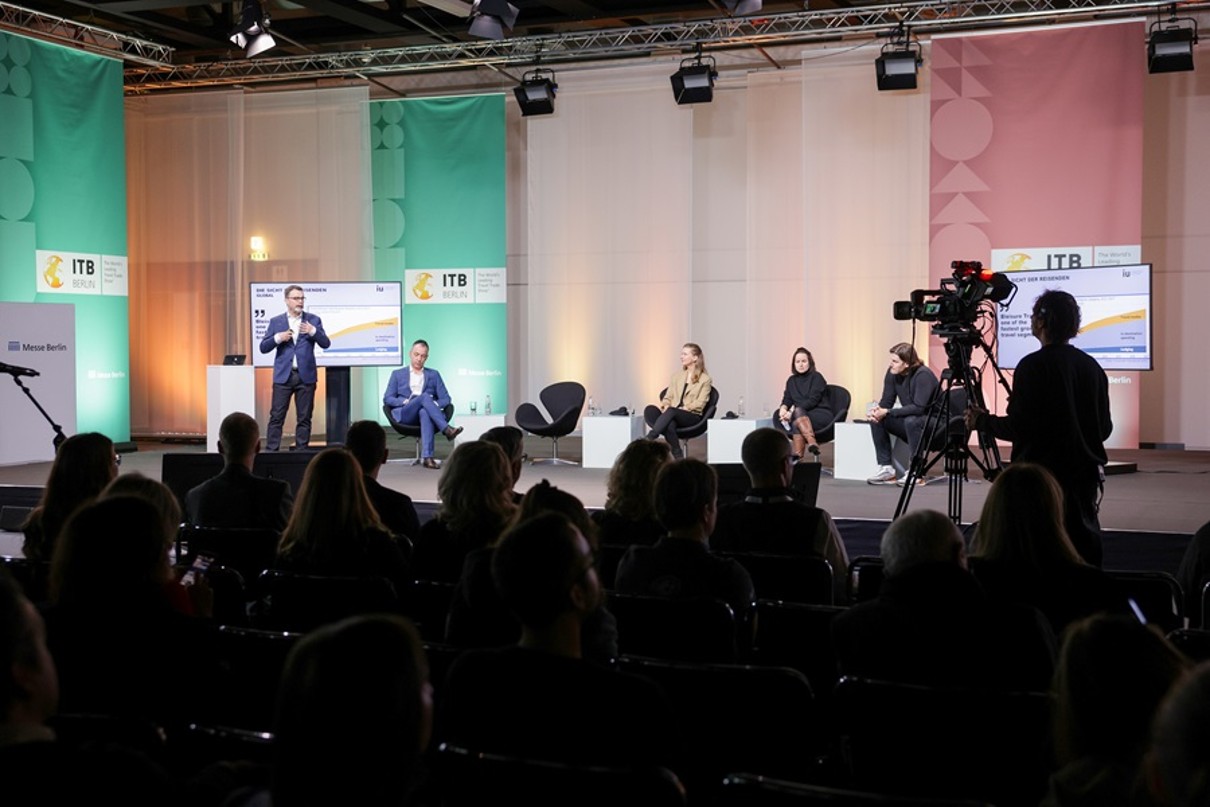Page content
Brandenburg instead of Bali: Workations and bleisure travel are expanding in Germany too
’New Work in tourism – what’s in it in Germany?’, was the title of a discussion round on the Hybrid Stage at ITB Berlin, organised by TMB Tourismus-Marketing Brandenburg GmbH (www.reiseland-brandenburg.de) and moderated by Dr. Andreas Zimmer, departmental head, Cluster Management, at TMB. On Tuesday afternoon the focus was on terminology, best practices and prospects. According to the journalist and chief editor Sylvie Konzack (https://bleisuretraveller.com/), this emerging market still has great potential, with only 15 per cent of the market currently exploited.
Professor Peter Neumann of IU Internationale Hochschule (https://www.iu.de/hochschule/lehrende/neumann-peter/) explained that there was a trend towards new forms of work under the heading ’new work’, along with a trend towards new forms of travel. The combination of business and leisure, or work and vacations, came under the heading ’bleisure travel’. “Workations are basically a kind of working holiday where people work from a different location, if possible in a relaxing environment that offers inspiration“, Neumann said.
According to Neumann there was a substantial market. “19 per cent of the working population and 30 per cent of companies know about workations“, Neumann said. According to a Euromonitor survey, bleisure travel was among the fastest-growing travel markets worldwide. New hybrid forms of travel under the collective term ’blended travel’, which above all attracted the younger generation, were increasingly becoming the focus of tourism managers. In Germany, the states of Rhineland-Palatinate and Thuringia were trailblazers in specialist bleisure travel, whereas Brandenburg was especially innovative in promoting workations, he said.
Vanessa Thielemann, founder of the BrALI Team Retreats & Offsites (https://www.brali.org) project, detailed her concept. At a time when many people work remotely, she wants to give teams the opportunity to meet in an environment that offers inspiration, and to that end is working closely with the Zukunftsorte Brandenburg (https://zukunftsorte.land/) network. She believes it is important that her services are not seen as coming from outer space, but as a way to reach out to the local region and population.
Nico Gramenz, who is currently setting up a Europe-wide network of workation providers under the heading Project Bay (https://project-bay.de/) is focusing on partnerships with hotels – and has already secured a large number in Mecklenburg-West Pomerania. “We want to establish a Europe-wide network of 50 partners. At present we already have 32“, said Gramenz, who sees his service not only as a business model but also contributing to the development of local regions.

.svg)

